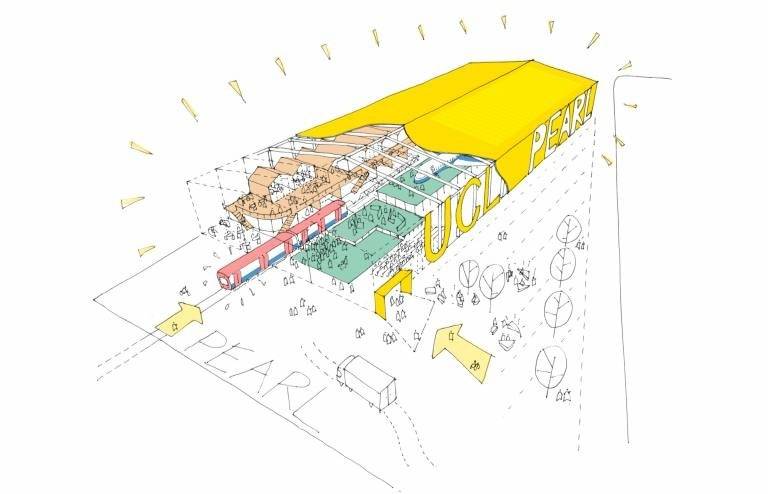University College London (UCL) has gained planning permission to build a laboratory that explores how people interact with their environments.
To be completed in 2021, PEARL (Person-Environment-Activity Research Laboratory), part of UCL Civil, Environmental & Geomatic Engineering’s (CEGE) Centre for Transport Studies (CTS), will be the only space in the world where researchers can precisely simulate large-scale environments such as train stations or town centres and test people’s reactions to them in detail.
The space, UCL’s first net zero carbon building, aims to improve quality of life through better infrastructure design. It will also facilitate research in different areas, from medical to smart data, public health and the performing arts.
The facility, near Dagenham East tube station, will form one of the core laboratories in the UK government’s EPSRC-funded UK Collaboratorium for Research on Infrastructure and Cities (UKCRIC).
PEARL will build on the work of PAMELA (UCL Pedestrian Accessibility Movement Environment Laboratory). PAMELA has informed the design of proposed London Underground trains and identified ways of improving infrastructure for people with dementia.
UCL Laboratory
At 14m tall and with 600sq metres of reconfigurable floor space, PEARL will have capacity to simulate different scenarios. These include recreating smells such as gas leaks and sounds ranging from the tiniest bird song to massive explosions. Several decommissioned London Underground trains will form part of the site.
“PEARL is a once-in-a-generation opportunity,” said professor Nigel Titchener-Hooker, Dean of UCL Engineering. “This new facility shows the power of engineering in delivering the full range of UCL’s capabilities in education and research.”
Professor Stella Bruzzi, Dean of UCL Arts & Humanities, said PEARL would ber versatile to work as: “a basic black box backdrop: a film or performance set which we could configure as required, to create a multi-sensorial amphitheatre for Greek plays, a 16th century theatre, or an open square for public performance.”
UCL Estates will deliver PEARL as part of Transforming UCL, a £1.25 billion ten-year programme of investment in UCL’s estate. It is in partnership with the UK Government, who are providing a £9 million grant through UKCRIC.
Professor William Powrie, Convenor of UKCRIC, said: “We see PEARL as the chief, if not the only, UKCRIC facility focusing on infrastructure/human interactions and, as the only facility delivering multi-scalar analysis of these interactions, it is crucial to the UKCRIC mission.”
UCL also has other major developments planned, including UCL East and a new facility for UCL Neuroscience in Kings Cross.

